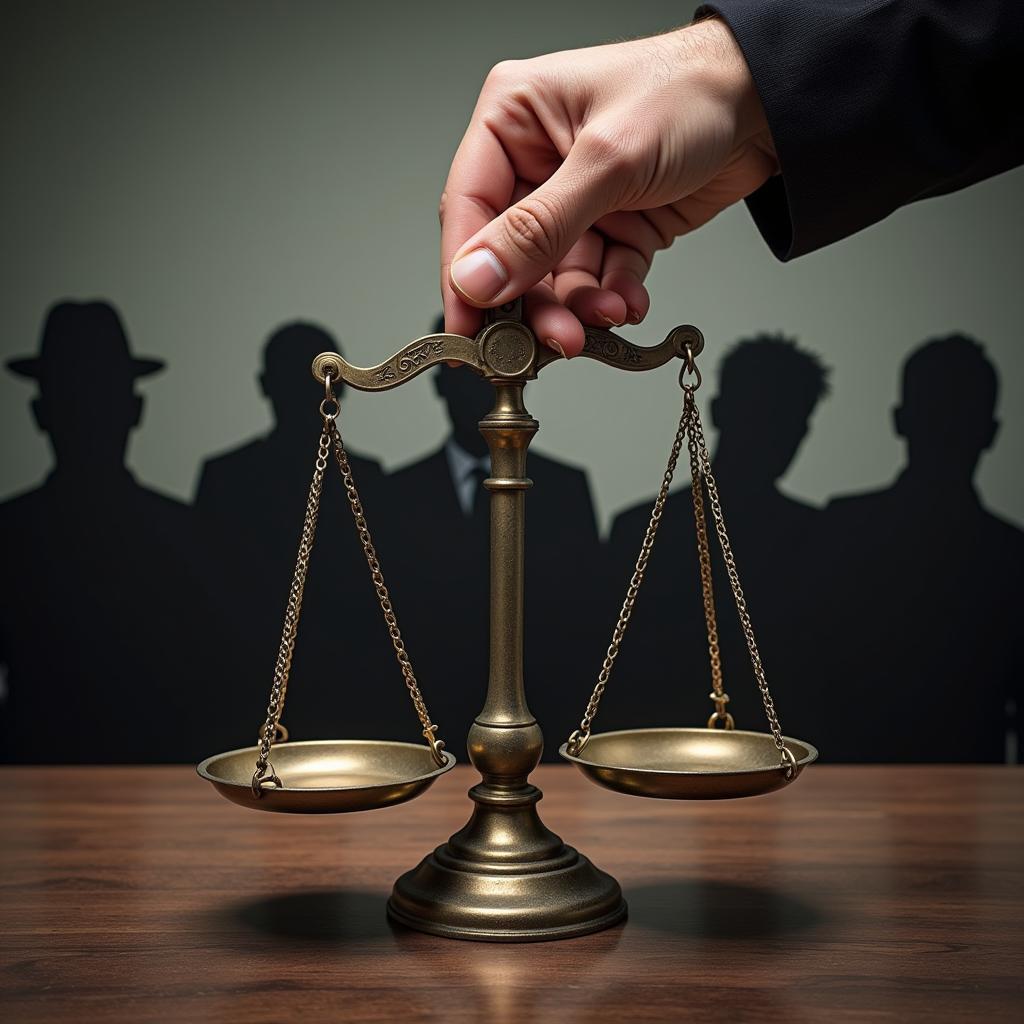The Formation Of A Persecuting Society is a complex process, often rooted in fear, misinformation, and the manipulation of societal vulnerabilities. Understanding how these societies emerge is crucial to preventing their devastating consequences and fostering a more peaceful world.
What Drives the Formation of a Persecuting Society?
Several factors contribute to the formation of a persecuting society. These range from economic instability and social inequality to political opportunism and the exploitation of existing prejudices. When these elements converge, they create a fertile ground for scapegoating and the demonization of specific groups.
- Economic hardship: When resources are scarce, people may be more likely to blame others for their struggles, creating an “us vs. them” mentality.
- Social divisions: Existing social hierarchies and prejudices can be exploited to divide and conquer, turning different groups against each other.
- Political manipulation: Charismatic leaders or political parties can use propaganda and misinformation to gain power by targeting minority groups.
- Historical grievances: Past injustices and unresolved conflicts can fuel resentment and create a cycle of violence and persecution.
the formation of a persecuting society isn’t a sudden phenomenon but a gradual erosion of tolerance and understanding.
How Does a Persecuting Society Maintain Its Power?
Once established, a persecuting society employs various methods to maintain its control and suppress dissent. These include:
- Censorship and propaganda: Controlling the flow of information and manipulating public opinion is essential for maintaining the narrative of persecution.
- Surveillance and intimidation: Monitoring citizens and using fear tactics discourages any opposition to the regime.
- Legal and institutional discrimination: Laws and policies are enacted to marginalize and disenfranchise targeted groups.
- Violence and repression: State-sponsored violence and arbitrary arrests are used to silence critics and maintain control.
 Mechanisms of power in a persecuting society: Control, suppression, and violence
Mechanisms of power in a persecuting society: Control, suppression, and violence
How Can We Prevent the Formation of a Persecuting Society?
Preventing the formation of a persecuting society requires a multi-pronged approach that addresses the root causes of persecution and promotes inclusivity and understanding.
- Education: Promoting critical thinking, media literacy, and empathy can help individuals resist manipulation and challenge harmful stereotypes.
- Dialogue and reconciliation: Creating spaces for open and honest dialogue between different groups can foster understanding and bridge divides.
- Strengthening democratic institutions: Independent judiciaries, free press, and robust civil society organizations are crucial for holding power accountable and protecting human rights.
- Promoting economic justice: Addressing social and economic inequalities can reduce resentment and create a more equitable society.
Dr. Anya Sharma, a renowned sociologist, emphasizes, “Education is our most potent weapon against the rise of persecuting ideologies. By fostering critical thinking, we empower individuals to resist manipulation and challenge harmful narratives.” persecuting society is a societal problem that requires societal solutions.
Conclusion
The formation of a persecuting society is a complex and dangerous phenomenon with devastating consequences. By understanding the factors that contribute to its emergence and actively working to promote tolerance, inclusivity, and justice, we can build a more peaceful and equitable world. The fight against the formation of a persecuting society is a continuous process requiring vigilance and collective action.
FAQs
- What are the early warning signs of a persecuting society?
- How can individuals resist persecution?
- What role does social media play in the formation of a persecuting society?
- Can a persecuting society be reformed?
- What are some historical examples of persecuting societies?
For further information, see our articles on historical society of reading pa.
Need support? Contact us at Phone Number: 02043854663, Email: [email protected] or visit us at Address: Khu 34, Bac Giang, 260000, Vietnam. We have a 24/7 customer support team.